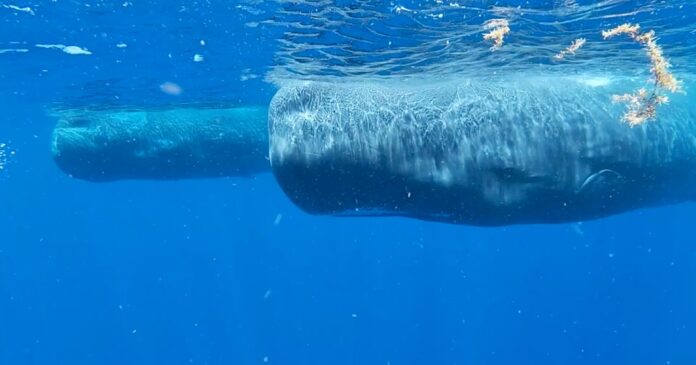For years, marine biologists have sought to decipher the intricate communication systems of whales, dreaming of a day when humans could understand their complex vocalizations. Recent breakthroughs in artificial intelligence (AI) are turning that dream into reality, offering a new way to connect with these intelligent creatures.
The Sperm Whale’s Hidden Alphabet
Sperm whales, known for producing some of the loudest and most elaborate sounds in the animal kingdom, communicate through a series of clicks called codas. These codas aren’t random noise; they form a structured alphabet, suggesting whales possess a language as complex as our own. This discovery highlights that intelligence and cultural development aren’t exclusive to humanity.
AI as a Translator
The key to unlocking this language lies in large language models (LLMs), the same AI systems powering tools like ChatGPT. These models excel at predicting patterns and creating new sequences, making them ideal for analyzing sperm whale codas. A pilot study, using a dataset of thousands of annotated codas, demonstrated that AI could accurately predict coda type, clan affiliation, and even individual whale identity with over 90% accuracy.
Technology Reconnecting Us to Nature
The paradox is that technology, often seen as separating us from the natural world, is now helping us feel more connected. AI isn’t replacing natural observation; it’s augmenting it, allowing researchers to analyze vocalizations at a scale previously impossible. This doesn’t mean technology and nature are at odds. Instead, tools can amplify our understanding and foster a deeper tether to the surrounding environment.
What’s Next?
The implications of this research are far-reaching. If we can accurately translate whale communication, we can gain insights into their social structures, migration patterns, and even their cognitive abilities. This knowledge will be critical for conservation efforts, as understanding how whales interact with their environment is essential to protecting them from human impact.
The ability to understand whale language isn’t just a scientific achievement; it’s a step towards bridging the gap between species, reminding us that we’re part of a larger, interconnected ecosystem.
Ultimately, AI is not just decoding whale language; it’s redefining our relationship with the natural world.






































